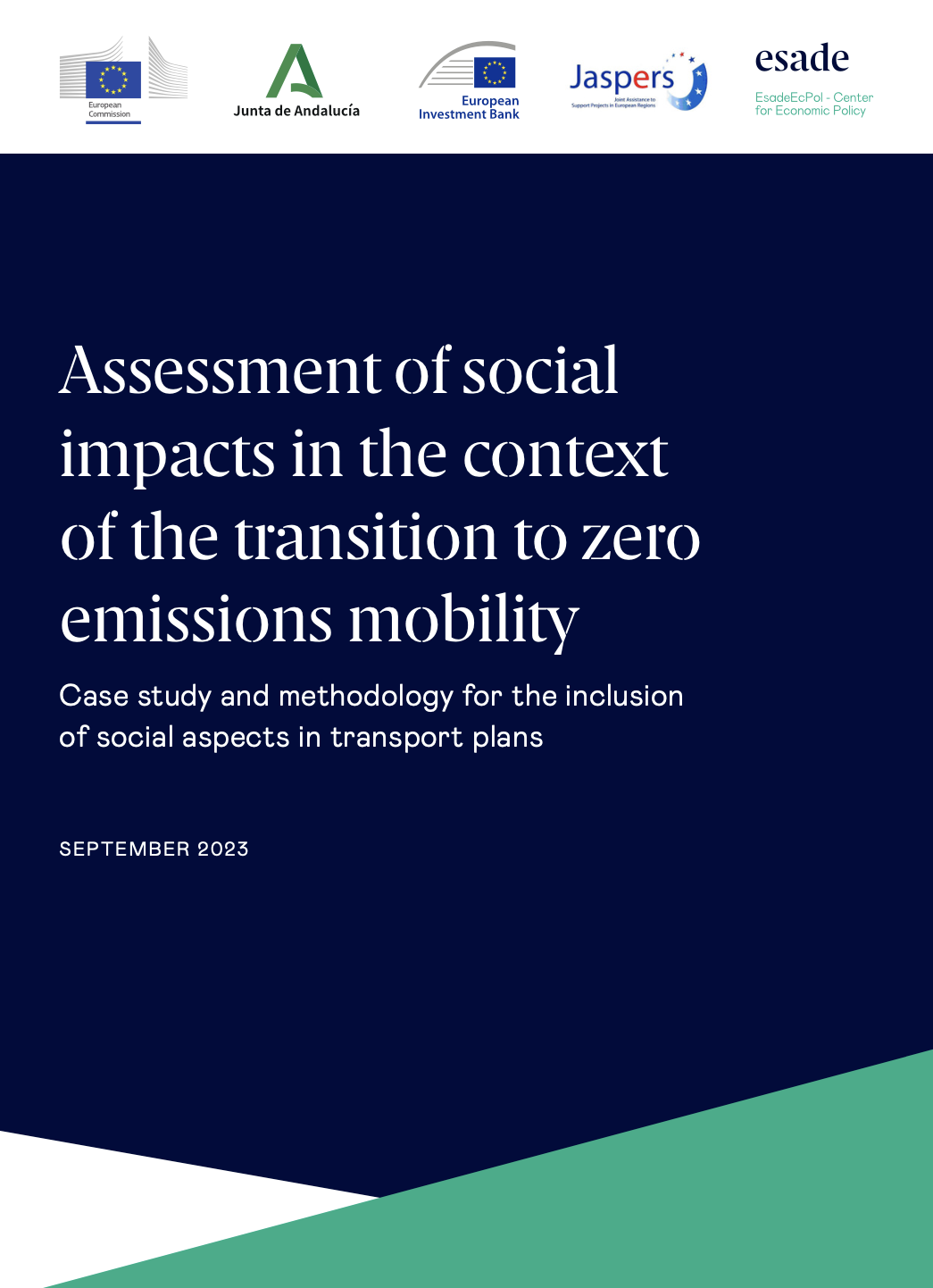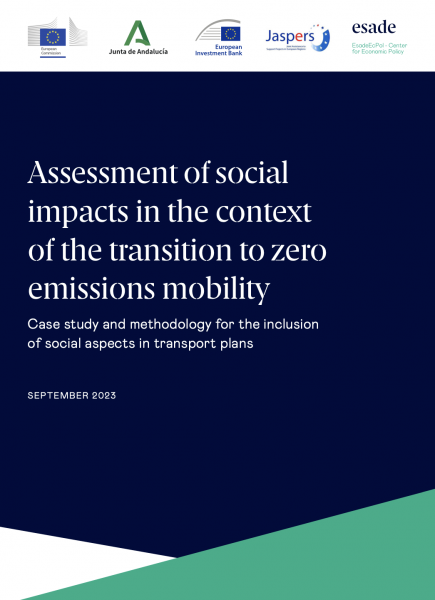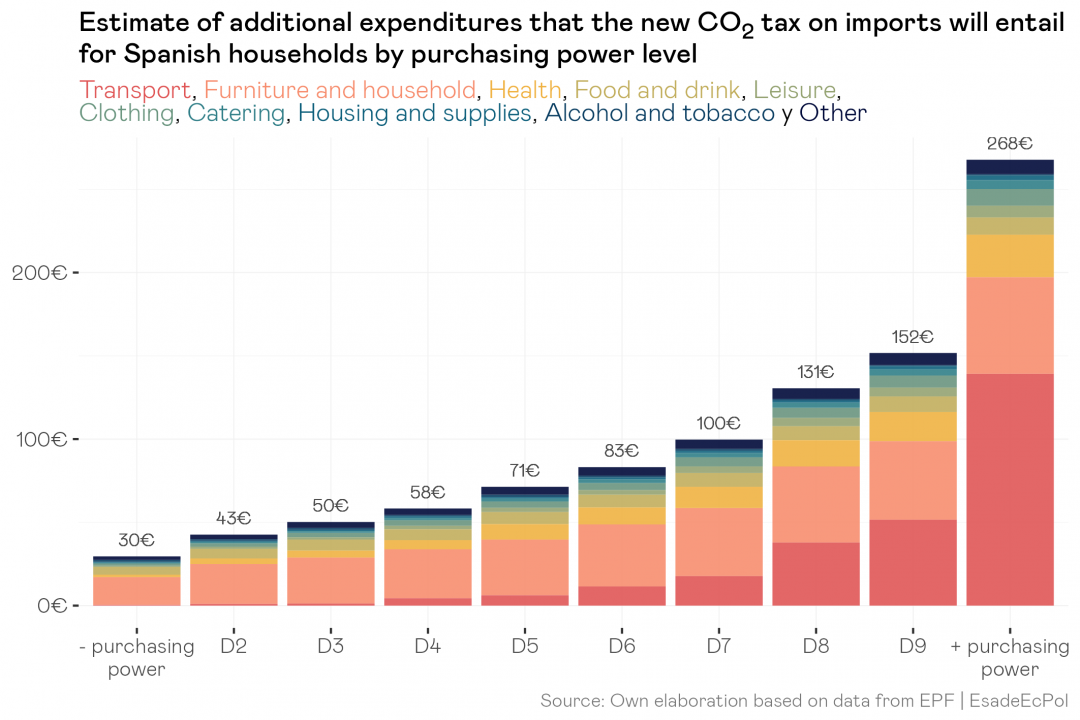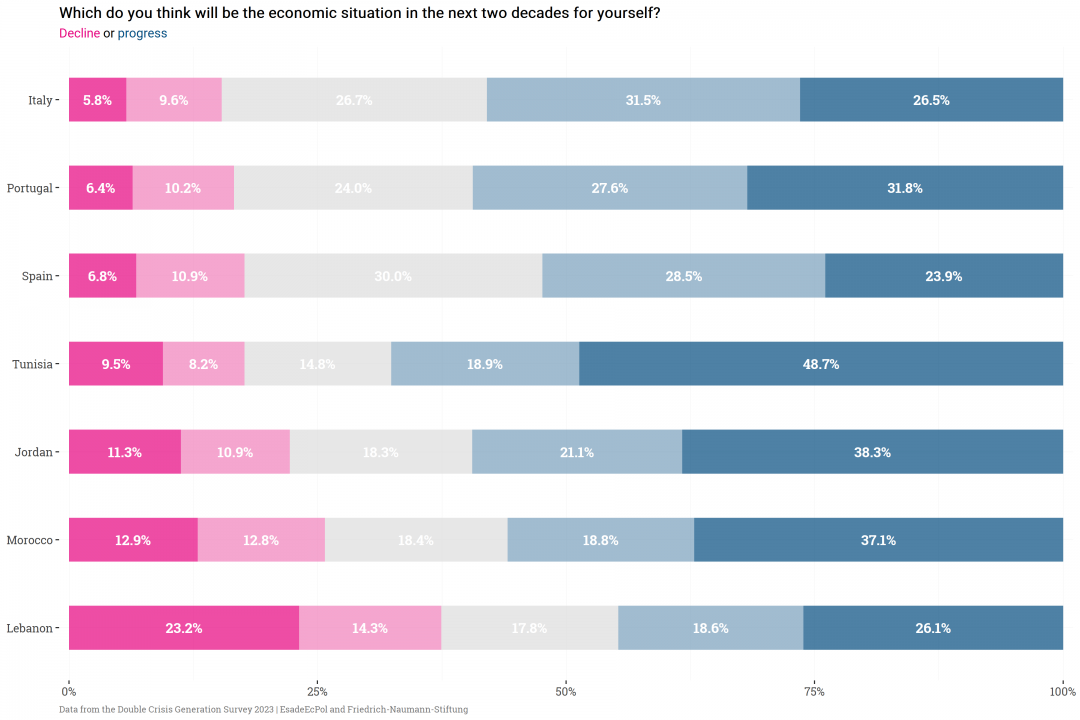
Assessment of social impacts in the context of the transition to zero emissions mobility
Natalia Collado Van-Baumberghen, Jorge Galindo
23 Nov, 2023
The urgent need for decarbonization has broadened the scope of transportation policy from improving network conditions, such as reducing congestion or improving accessibility, to include sustainability considerations, promoting zero-emission mobility, and climate change adaptation measures. While these measures are critical in reducing the carbon footprint of the transportation sector, they can also have unintended social impacts that may disproportionately affect certain populations. For example, imposing new tolls or taxes on gasoline may disproportionately affect low-income communities that have less disposable income and rely on personal vehicles. Therefore, the inclusion of social criteria in the design of transport plans takes on particular significance.
In the pursuit of a more sustainable transportation sector, it is critical to ensure that the burdens of these transformations are not disproportionately placed on the vulnerable or marginalized groups. Furthermore, when developing decarbonization strategies, there must be a clear understanding of the potential social impacts and how they relate to existing social inequalities and context. However, the intertwining of environmental and social, which sometimes leads to conflicting outcomes, adds to the complexity. Moreover, because sustainability issues have only been incorporated into the transportation sector in recent years,there is a lack of specific methodologies to successfully incorporate these social aspects into current planning processes.
Against this background, the project Assessment of social impacts in the context of the transition to zero emissions mobility, developed by JASPERS-European Investment Bank (EIB) together with Esade’s Centre for Economic Policy (hereafter EsadeEcPol) and Andalucía’s Autonomous Government (hereafter Junta de Andalucía) aims at providing external guidance to ensure that the Metropolitan Transport Plan of Granada (hereafter MTPG) aligns the social sphere and its strategic objectives and policies. In a nutshell, the Junta de Andalucía launched the development of the MTPG, involving JASPERS-EIB on its approval process, which in turn made EsadeEcPol its partner for executing the present assessment to be incorporated and implemented by the Junta.
The scope of the project, however, is more ambitious as the ultimate goal is to develop a practical methodology for the inclusion of social aspects in transport plans.
This report includes this final milestone and summarises the results and findings obtained throughout the project. The document is structured as follows. First, an introduction of two of the institutional partners involved in the project, i.e. JASPERS-EIB and EsadeEcPol, and their roles is provided together with a brief overview of the role of the Junta de Andalucía in the development of the Granada’s Metropolitan Transport Plan and the Plan itself. Secondly, the proposed methodology for the inclusion of social aspects in transport plans is presented and its potential applicability is discussed. Then, the main takeaways of a workshop hosted to disseminate among practitioners and policy makers the methodology are considered, followed by some conclusions and next steps to move forward in this new era of transport planning.


Research Economist en EsadeEcPol. Máster en Economía Industrial y Mercados regulados por la Universidad Carlos III de Madrid
View profile


